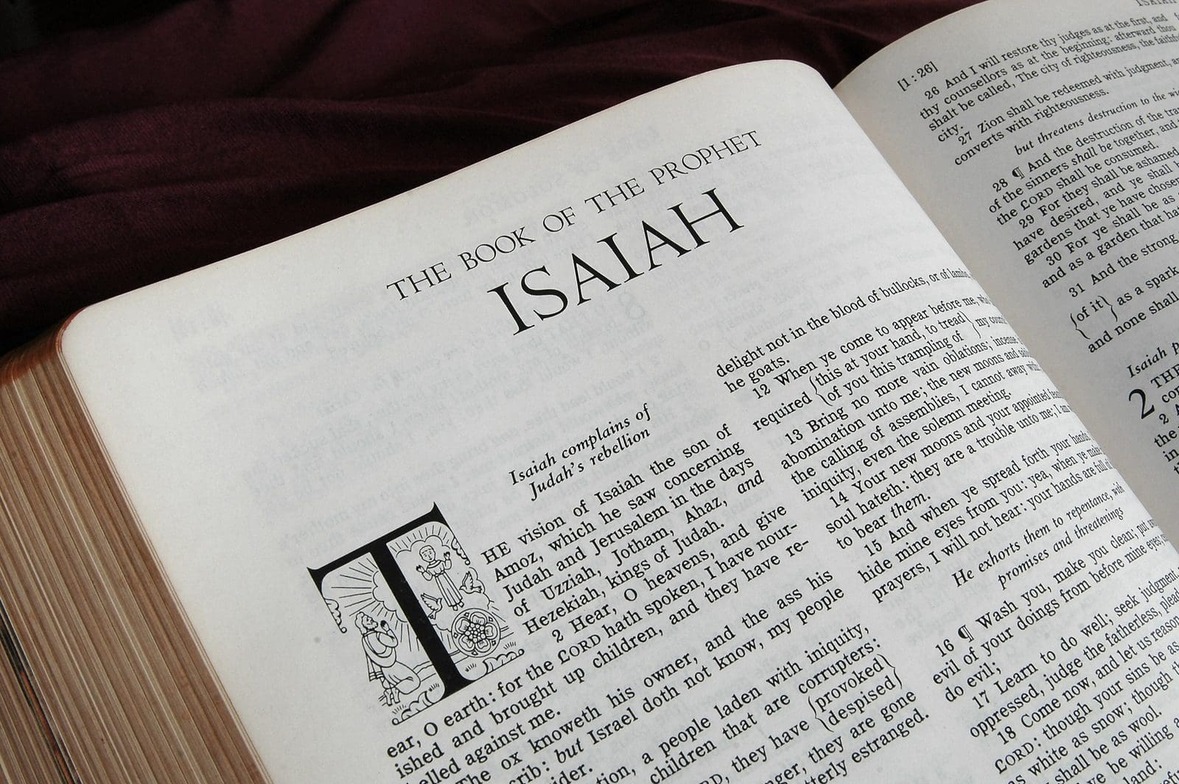
Overview
Isaiah 52 and Isaiah 53 should be one chapter. Both chapters highlight the Messiah as the “Suffering Servant”. It is the clearest picture of the person and work of the Messiah up to this point in the Bible.
Isaiah 53:1-3
“Who has believed what he has heard from us? And to whom has the arm of the Lord been revealed? For he grew up before him like a young plant, and like a root out of dry ground; he had no form or majesty that we should look at him, and no beauty that we should desire him. He was despised and rejected by men, a man of sorrows and acquainted with grief; and as one from whom men hide their faces he was despised, and we esteemed him not.”
Progressive revelation. It is a term theologians use to describe how God chose to reveal Himself to us. Isaiah 53 is a giant step in progressive revelation. Up till this point, the portrait of the Messiah was pretty bland, pretty nebulous. Little breadcrumbs dropped here and there—but not much to go on. Now we are given some color commentary. The Messiah was just a normal looking guy. He grew up “out of dry ground”. His background wasn’t going to be noteworthy. His environment would not seem ideal to groom the Messiah of the world. Finally, the Messiah would be despised, rejected by men. He would be a man of sorrows.
This picture of the Messiah was no doubt hard for the Jews. Other parts of the Old Testament prophecied the Messiah coming as King and conquering hero. Restoring Jerusalem to global importance. To be clear, the Messiah will do that. Jerusalem will rise again. But not during the Messiah’s first coming and even at the Second Coming, it will not look entirely how the Jews imagined it.
Isaiah 53:4-6
Surely he has borne our griefs and carried our sorrows; yet we esteemed him stricken, smitten by God, and afflicted. But he was pierced for our transgressions; he was crushed for our iniquities; upon him was the chastisement that brought us peace, and with his wounds we are healed. All we like sheep have gone astray; we have turned—every one—to his own way; and the Lord has laid on him the iniquity of us all.
There is a lot in these three verses. Humanity is in a deparate place. Isaiah calls us “sheep”. We are wandering outside the fold, going wherever we want. The portrait of humanity is clear: We are blind, lost, independent and dumb. YHWH sent us a shepherd. But this Shepherd is going to be “pierced” and “crushed”. His wounds are going to heal us.
This is obviously a foreshadowing of the person and work of Jesus of Nazareth. We are told of His atoning work. All these faint shadows lead us to the cross. We get to look back—Isaiah’s audience still had to look forward. The hope for them was still to come.
Isaiah 53:10-11
Yet it was the will of the Lord to crush him; he has put him to grief; when his soul makes an offering for guilt, he shall see his offspring; he shall prolong his days; the will of the Lord shall prosper in his hand. Out of the anguish of his soul he shall see and be satisfied; by his knowledge shall the righteous one, my servant, make many to be accounted righteous, and he shall bear their iniquities.
Verse 10 is difficult for many to accept, to comprehend. It was the Father’s will to crush His Son. They planned it in eternity past. They knew humanity would fall. They knew their image-bearers would be lost without a Savior. But the cost was high. Yet the Son came to earth willingly. The second person of the Triune God chose to clothe Himself with humanity—forever becoming the God-man. He had to do this to be our substitute, so He could take our place.
It is impossible for us, even followers of Jesus, to really comprehend the profundity of the cross. But at another level—that is okay. All I know is that “it is finished”. My sins are “as far as the east is from the west”. I will spend eternity drinking in the endless revelation of God. As Lewis used to say, “Further up, further in”.
So today I just want to be thankful and I want more of Him. Do you? God is always available. Go Spend some time with Him today.
